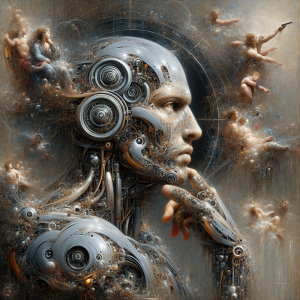In light of growing concerns over the displacement of jobs by advanced artificial intelligence (AI), Sam Altman, the head of OpenAI and a key figure behind the development of ChatGPT, has funded a comprehensive three-year investigation into the role of Universal Basic Income (UBI) in counteracting such disruptions. The study provided financial aid to individuals with low incomes, uncovering valuable data on UBI’s potential to balance the effects of escalating automation in the labor market.
The research, costing $60 million, delivered a monthly payment of $1,000 to 1,000 people, contrasting with a control group of 2,000 recipients who obtained $50 monthly. Personal contributions from Altman amounted to $14 million, with an additional $10 million supplied by OpenAI. Findings as of July indicate that recipients prioritized the use of this income for crucial needs including food, shelter, and transport, as well as adopting healthier lifestyle choices.
According to Elizabeth Rhodes, the project’s lead researcher at Basic Income Project from Open Research, “Addressing poverty and economic uncertainty is challenging. The nuanced outcomes we’ve observed thus far are indicative of this.” Those who benefited from the UBI initiative showed an increased appreciation for work, opting for jobs that offered them greater satisfaction, including lower-paying freelance roles or launching their own ventures, debunking the notion that UBI might deter people from working.
Yet, the research also pointed out certain difficulties, especially in the area of healthcare. Despite an increase in recipients seeking medical attention and a reduction in substance usage, no conclusive evidence emerged regarding better health access or outcomes. Additionally, the positive effect on stress and food stability seemed to wane as the research unfolded over its three-year duration.
A Range of Views on UBI within the Industry
The conversation around UBI is varied within the AI community. For instance, AI pioneer Geoffrey Hinton views UBI as an essential response in the wake of AI-related employment losses. By contrast, Dario Amodei of the AI enterprise Anthropic suggests that UBI might not be the definitive solution. Sam Altman himself has recommended a concept of “universal basic compute,” suggesting that providing access to AI computing power could either enhance or replace the need for UBI.
Reflecting on the research findings, Rhodes remarks on the intricacy of the economic challenges posed by AI: “The study reminded us that these issues are complex and may not have a single solution.” The study highlights that although UBI may offer some solace for those impacted by AI’s ascendance in the economy, it is unlikely to be the complete remedy many had anticipated.
























